Ida Engberg & Adam Beyer
Back to back with the first couple of techno
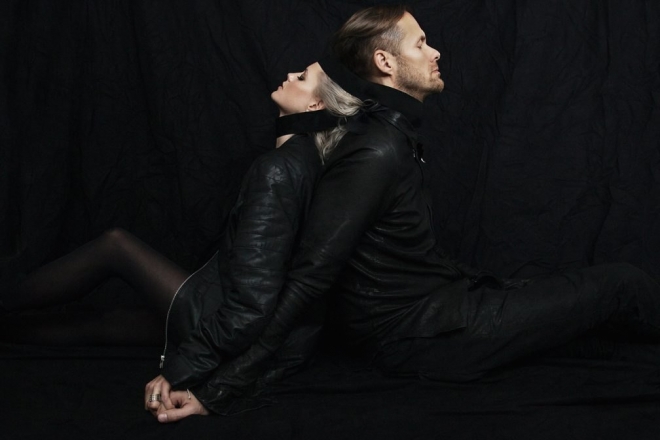
Despite protestations to the contrary, Adam Beyer looks dog-tired. Collapsed in a chair, he's playing absentmindedly with the frayed edge of a slim-fit, black jumper poking from the sleeve of his slim-fit, black leather jacket. "It's been on repeat for the last six months," he says, in his baritone voice. "…Over and over." agrees Ida Engberg, smiling brightly, but also looking as though regular sleep patterns are a cruel fantasy.
After two hours of caffeinated conversation in a hotel conference room, the couple have circled back onto the subject of music. But this time it isn't the latest Drumcode release they're discussing, it's the Frozen soundtrack – their four-year-old daughter is obsessed. And while it's difficult to parse the image of two world-conquering DJs being subjected to 'Let It Go', you get used to it. After all, in another part of the hotel, their management is babysitting their youngest in place of their nanny, who is stranded at the airport. Not what you need the night before you're scheduled to play Richie Hawtin's huge ENTER blowout in London, but welcome to the world of Adam Beyer and Ida Engberg. Techno figurehead. Reigning queen of Ibiza. Very knackered parents.

Not that they're complaining. "A lot of people have this thing in their mind that to do this you have to party your ass off and be a stereotypical DJ. But there's a lot of darkness involved in that lifestyle as well," says Beyer. "If you can turn that around – which is what we've done – and be disciplined, it can be something beautiful."
Indeed, where many would use the excuse of three kids in five years to relax, perhaps cop a bit of leave, Beyer and Engberg are in the midst of a hectic schedule that cements their shared profile."It's quite a nice angle," Beyer reflects. "And it makes us have time on our own which we don't really get. You need that: to do something together." For some couples, this would mean date night at Jamie's Italian. For Beyer and Engberg, it's their popular back-to-back DJ sets.
Watching them play at Tobacco Dock the next day, a queue an hour long snaking from the main room, they feed off each other so fluently you'd be hard-pressed to know where one ends and the other begins: snake-hipped house, deeper cuts like 'Never Stop' by Roberto Capuano, warm, grooving techno: push-pull, tension-release.
By the end of it, the sweat-slicked crowd, girls in body-con and lads in statement sunglasses, septum pierced adrogynes and disembodied selfie sticks – looks like a vision of Hieronymous Bosch for River Island.
If they weren't the only high-profile DJ couple doing back-to-backs, they'd definitely be the most vital. Why? Dynamics. And chatting to them, it doesn't take a genius of perception to see that theirs is a partnership based on a myriad differences, their strengths and weaknesses tessellating just so. Indeed, while their trajectories collided in Ibiza – or was it Stockholm, they're hazy about the details – in 2008, how they'd each got there was vastly different. Then, as now, Beyer was synonymous with a certain kind of rich, grooving, multifaceted techno, his label, Drumcode, logging nearly 20 years in service. An unfaltering vision had made him and his label into a blue-chip brand and one of techno's constants.
Engberg, by contrast, was playing it by ear. "I always played more for fun, I never wanted to be the biggest DJ in the world," she recalls. She was up-and-coming, possessed of a dynamic style that collapsed the already poorly manned borders between minimal, deep and tech-house. The musical attraction, however, initially, ran one way. "I wasn't a big techno fan," says Engberg. "But I started to listen to more minimal stuff just around the time Adam was playing more minimal stuff. We pretty much met through our interest in that." Their musical tastes may coincide, but the contrast between them is obvious. Perhaps to best understand the partnership, you have to understand the component parts.
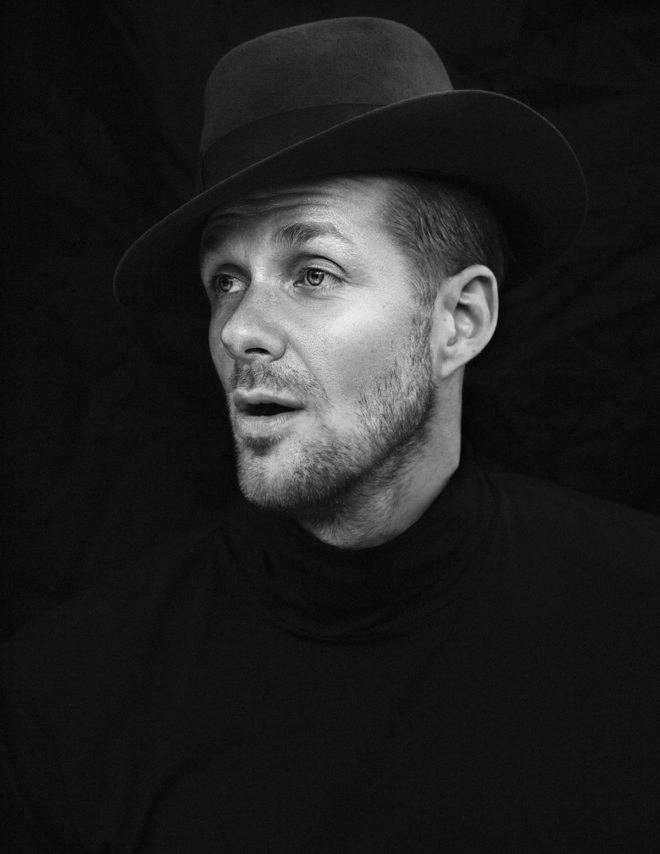
"I'm much more into the whole work ethic," explains Beyer. "Something I really admire in Ida is her ability to see the small things in life." Indeed, he comes across as highly focused and, on the surface, intimidatingly serious. This stems from his youth, when music was an outlet for his emotions, particularly after the death of his father, a music-loving man who'd dreamed of playing the drums professionally. "With my father passing it wasn't easy, and music was really an escape," Beyer says, candidly. "I had a lot of anger in me." That didn't go unnoticed by his mother. Sensing her 13-year old was going off the rails, she circumvented a law in Sweden that says a child has to be 18 before they can access their parent's estate. "I wasn't a class A student. I was out quite a lot, in some trouble, even. I had started to drink, smoke, jazz cigarettes. My mother saw some good in the music and saw that I got a chunk of money [from the estate] which allowed me to buy my first decks. That meant the world to me."
It was a continuation of a musical education already well underway. Like his father, he'd started out playing the drums, but was drawn instead to the machine rhythms of the late 80s: Italo-disco, hip hop and later, house. Scouring the import section of Stockholm's record shops, he was always on the lookout for the next beat – the tougher the better. "Remember 'It Takes Two' by EZ Rock? I just wanted it to be banging and heavy," he says. By 11 he'd swapped drumming for DJing and by 16 he was releasing his first vinyl.
'Swed' was a brain-curdling wedge of acid trance with an A-side clocking 170bpm, a collaboration with his friends Joel Mull and Peter Benisch under the name Slaughterhouse. "Oh, we thought we'd made it," Beyer recalls, wryly. But Slaughterhouse was destined to be the first of many experiments with style as he pieced together his own musical identity. It was only when he discovered Jeff Mills in 1993 that his tastes began to crystallise. "I've always been a serious guy. When I found 'X-Form Volume 3', I saw the more conceptual side of techno, which no other genre had. I identified with it." It's no coincidence that a year later, he hit upon a sound that was finally true to his vision: 'Drum Codes 1'. The first record to bear Beyer's real name, it was released in 1995 on Planet Rhythm, the in-house label of the record shop where he was working at the time. Highly reduced, percussive and, in its steely, mass-in-motion physicality, deadly efficient. "I'd started to create my own style, that's when I was like 'This is what it's going to be'." Like his sound, Beyer was caught in a forward trajectory.
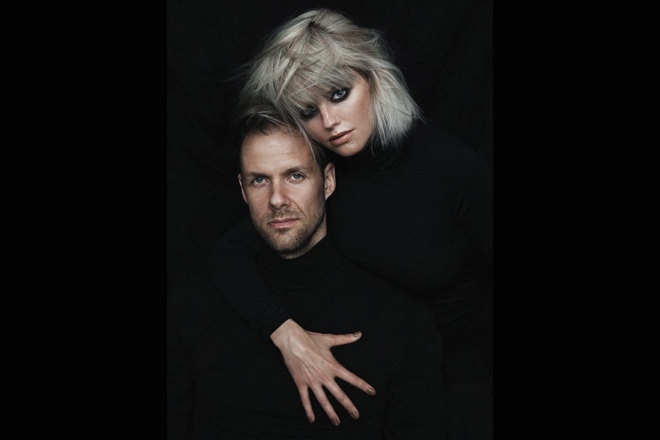
Unlike Beyer, Engberg never expected to make a living from music. Speaking quickly – the caffeine's kicked in – and dressed down in a chunky knit jumper, she's polite, but guarded at first. She too spent her childhood in Stockholm, but unlike Beyer, was a good, if apathetic student at school. Introduced to house by her Ibiza-loving sister and taught to mix by a boyfriend at 13, Ida nonetheless had no early inclination to DJ professionally. She wanted to go into advertising, she recalls. However, when her sister's boyfriend, an art director, agreed to take her on she spent her internship studying another kind of trend forecast. "All the time I was looking at the music charts from Holland. It got to the point where he said maybe I should take music seriously." She resisted, until an opportunity arose that forced her hand: "I got my first gig by accident – a friend was running a bar and his DJ called in sick." Borrowing her sister's music collection, she set about not fucking up. "I remember taking it very seriously," she says.
It paid off. Her regular presence on Stockholm's small music scene helped her land residencies in Stockholm, then later, Paris and Marbella. A life-changing trip to Ibiza in 2005, in the company of her new-found party friends, sealed the deal. "We spent a whole season there, going out every day. I was playing in small bars and took every chance to play I got." Once again, her spontaneous approach to life had worked in her favour. Upon her return to Sweden she took on a residency at Cocktail Club, fitting her minimal sound alongside the likes of Carl Craig and Damian Lazarus. She released her first record, 'Disco Volante', in 2007. A decent Border Community facsimile, unbeknownst to her the label had been liberal with its licensing and it charted in Belgium and Holland. Suddenly she was transplanted to more commercial parties – and she hated it. "It wasn't really connecting with where I wanted to be," she says. "In Belgium I ended up in places where the big floor was hardstyle. It was just kids with glow sticks in the middle of the forest. I had to stop playing there – I didn't go back until Fuse!"
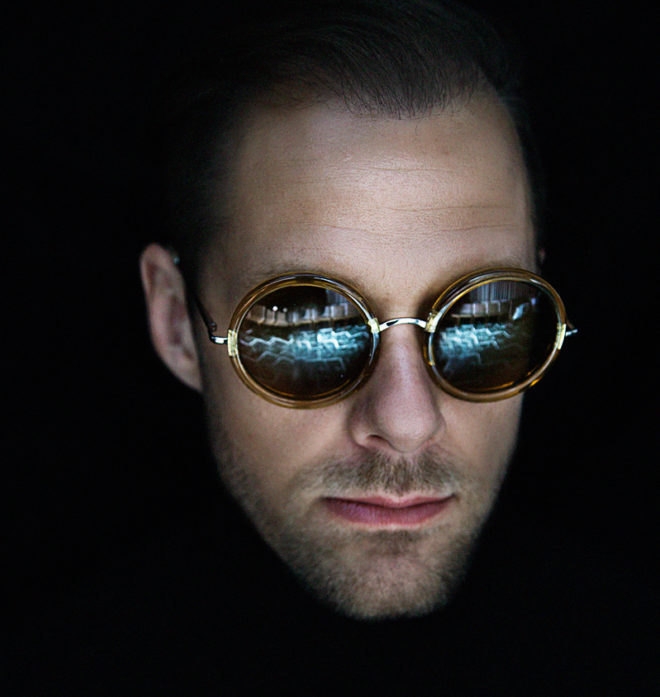
A gig at the Sunday School For Degenerates party at 2009's Miami WMC helped get things back on her terms. Billed as a showcase of cutting-edge stars and fresh talent, she was given a crappy indoor slot at the same time as the terrace opened. "I actually wanted to cancel," she remembers. "I was so tired as I'd been travelling and I thought there wouldn't be anyone in there anyway." She pulled herself together and - praise the Norse gods - it rained, leaving her a captive audience of industry insiders. "It was the gig that changed everything," she says. Indeed. One of the DJs in attendance was Beyer.
By then, Beyer had softened his sound and teased open the dense rhythms, inspired by three seasons in Ibiza with Richie Hawtin, and Engberg fitted the new direction. He invited her to play his Drumcode parties and they became close friends.
As Engberg's DJ profile rose, she returned to the studio, released spacious, lacquered 4/4 on Drumcode and Truesoul and the pair even went head-to-head for two releases, 'The Color Out Of Space' (2012) and 'You Know' (2013). So was she ever concerned that her own identity might be subsumed by her association with Beyer, his profile at the time being bigger? "At the beginning we spoke about whether it was good for me to release on his label or if I should do my own thing. But he really liked it, so why release it somewhere else?" she says.
Meanwhile, their first daughter made an appearance. Then the second. Then the third. One look at Engberg's Instagram (beautiful sprogs in luxe hotel rooms and by the lake) suggests they're doing a pretty tight job of maintaining the work/life balance. However, bringing the two together hasn't always been easy, especially when she was expecting. "For me, coming to a gig was always connected with having a cigarette and a drink. Suddenly it was like – pfff – everything was very real and very clear," she says. "When you're pregnant you feel really odd being in a club. I was walking to the DJ booth in DC10 and a girl was like, "Oh my god! There's a pregnant woman on the dancefloor!" People are so amazed at the sight of a pregnant woman DJ.'" Is that it, then, we wonder? No more all nighters unless it's teething time? Beyer: "We have a rule where we don't do excessive partying without each other. Like all relationships it's about trust and honesty and openness."
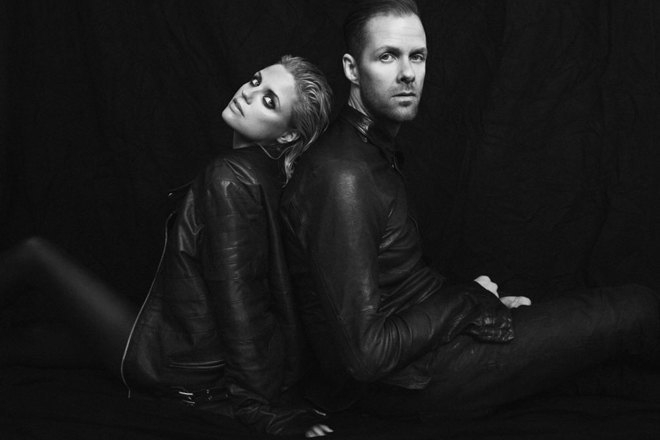
It sounds naff, but their back-to-back sets are an extension of these. Beginning as a casual afterparty event a couple of years ago, they've become a main room draw. Engberg puts it down to their relationship: "There's a really good energy between us, a really strong bond on a personal level." Any arguments behind the decks so far? Engberg looks horrified: "No!" For Beyer, it's all positive. "Ida inspires me," he says. "Maybe more than I do her. She has an ability to find music that I tend to overlook, then I'll hear it played out and think it's the best thing I've ever heard. She'll be like, "Yeah, I played you that yesterday at home and you said it was shit."
At the ENTER afterparty, Beyer and Engberg relax into a much more loose-jointed set than at ENTER itself, Beyer's technical prowess and Engberg's spontaneous selections – their personalities, very different – meeting in the middle. That they're both in a really happy place is obvious. "Now's the time to really enjoy," declares Beyer, definitively. "Before, I've never been able to be happy with what I've had. Now I actually am." One thing: they do know they're going to get called techno's power couple, right? Beyer rolls his eyes before cracking a rare smile. "I'm not sure about power couple, but techno's couple, maybe."


